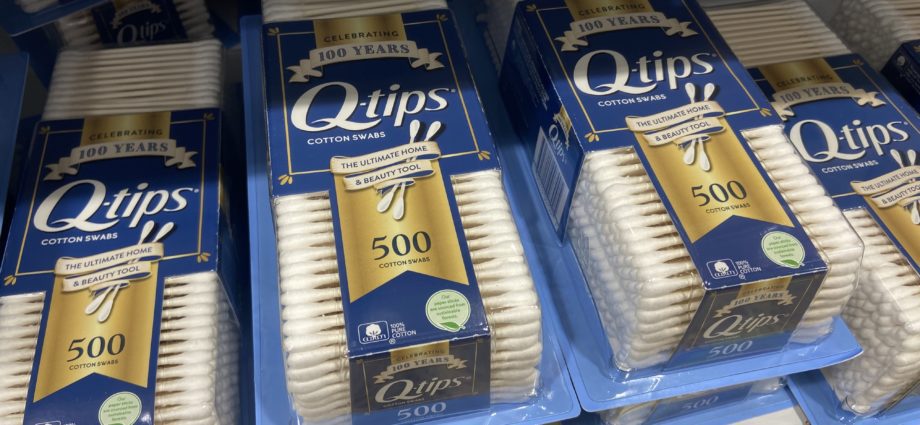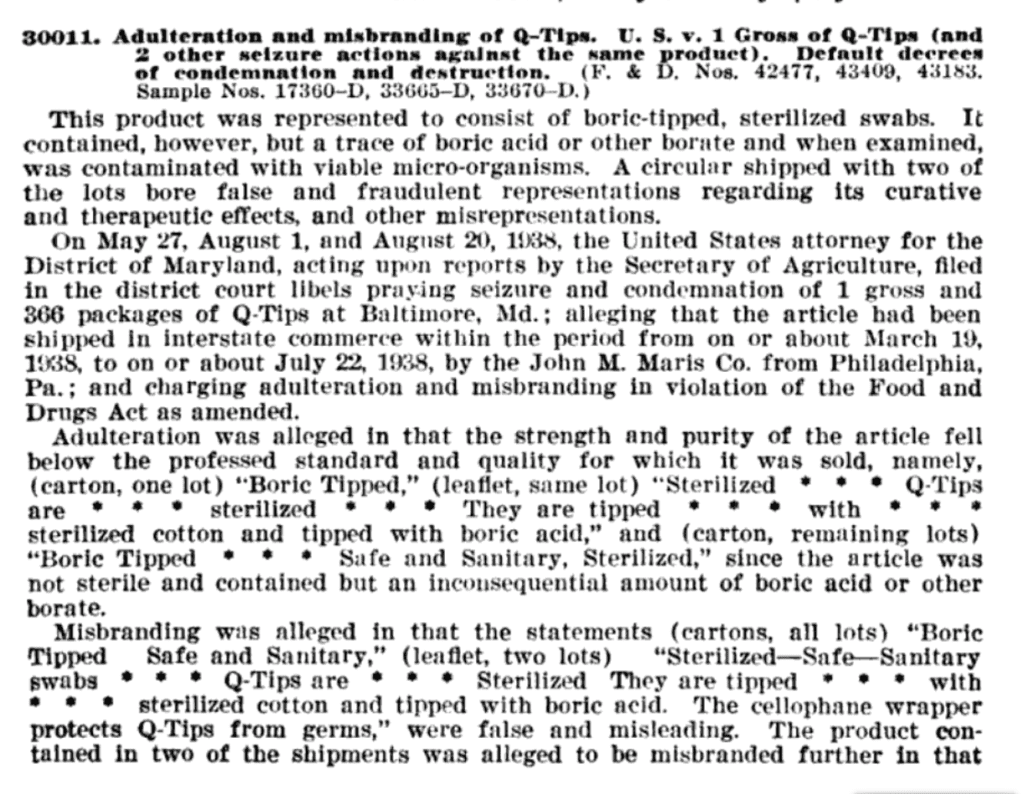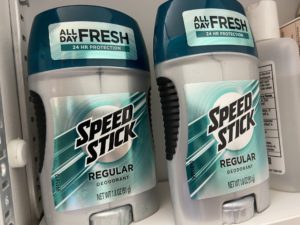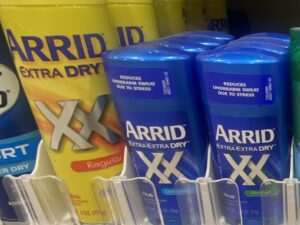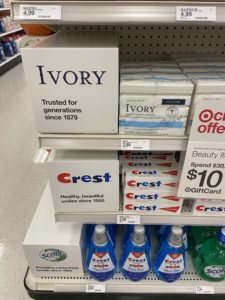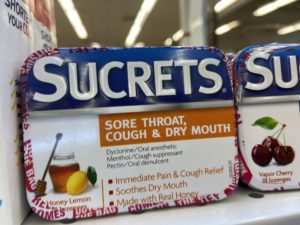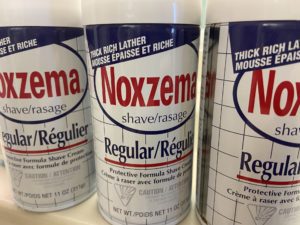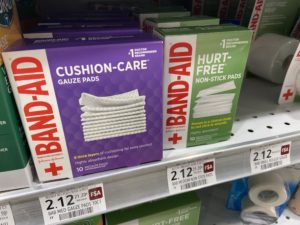The humble Q-Tip, that cotton swab on a stick, celebrates 100 years in 2023. In preparation, the brands owner, Unilever, has released centennial packaging, seen in stores, including Publix. That the centennial info is before the actual year is the smart thing for a brand; you can use the century of trust in years before the actual year, and after. Note that there is no date on the packaging, in case it goes stale.
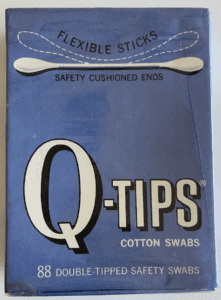
Entrepreneur Leo Gerstenzang, the original founder of the Q-tips Company, conceived the idea of manufacturing a ready-to-use cotton swab by seeing his wife put cotton balls on wooden stick. To profit from the idea, he founded the Leo Gerstenzang Infant Novelty Co. in 1923, which would come to specialize in baby care accessories. He originally called the product Baby Gays.
In 1926, the labels were changed to read Q-Tips Baby Gays. Later, the company dropped the name Baby Gays, and Q-Tips became the brand. The “Q” in Q-Tips stands for quality, according to company today, and the word “tips” describes the cotton swab at the end of the stick. Is it Q-Tips, Q-tips or Q-TIPS? Appararently depends upon the year.
In the last century, the swabs have become not only a beauty product, but used for cleaning small objects, including art and electronics and hundreds of particular uses. As I recall, meanie elementary school students even can make them into schoolroom projectiles, if you add pin on the end, and blow it out of straw.
Purchase by Vaseline Owner
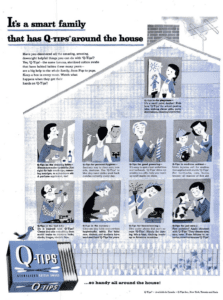
In 1962, Cheesborough-Ponds acquired Q-Tips, and allied the product with brands like Vaseline and Ponds cold cream. In 1987, Unilever, the company founded in 1885 in England as Lever Brothers by grocer William Hesketh Lever and his brother James, bought Chesebrough-Pond’s. The purchase included Q-Tips.
In 2021, the Wall Street Journal reported that the product was among many lower margin brands that Unlever was considering spinning off, including Q-Tips, Caress, TIGI, Timotei, Impulse, and Monsavon. Reuters subsequently reported that there was not enough interest to sell them.
While the product is almost always located next to a store brand, it is one product that is ubiquitous in households, yet has almost no competition save the store brands.
There have been other competitors, including Johnson’s Cotton Buds. US Cotton of Cleveland makes a large number of other cotton swabs and cotton products. The product has been produced in a number of places, first Long Island City, then Jefferson City, Mo. and later Las Piedras, Puerto Rico.
Synonymous With Swab
Like Xerox, Band-Aids, Coke and Google, Q-Tips do not need a descriptor. The brand calls itself a Q-Tip cotton swab, but the reality is that the name of the product is synonymous with what the object looks like, at least in the mind of most American consumers. People call it a Q-Tip, which the company hates. Cotton swab is almost never used in practice. Their website has a stern warning that almost no American follows:
Q-TIPS® is a registered trademark of Unilever and is NOT a name for just any cotton swabs. The Q-TIPS® trademark can only be used to refer to the specific cotton swab products manufactured and sold by Unilever and should not be used to refer to cotton swab products of other companies or to cotton swabs generally. Appropriate generic terminology for cotton swabs includes the terms “cotton”, “stick(s)” and “swab(s)”. Misuse of the Q-TIPS® trademark constitutes an infringement of Unilever’s exclusive rights in the mark.
Unilever’s website for Q-Tips.
The brand stresses that it is not for the cleaning of inner ears, but of course, that is what it is most associated with. As Jimmy Kimmel once said, “Why is it so bad for you if it feels SO good.”
Instead of promoting ear care, the brand has a list of Q-Tips hacks here.
Back in the 1930s, the company was making many health claims about the use of Q-Tips.

